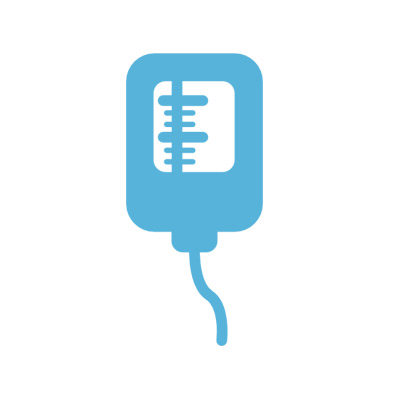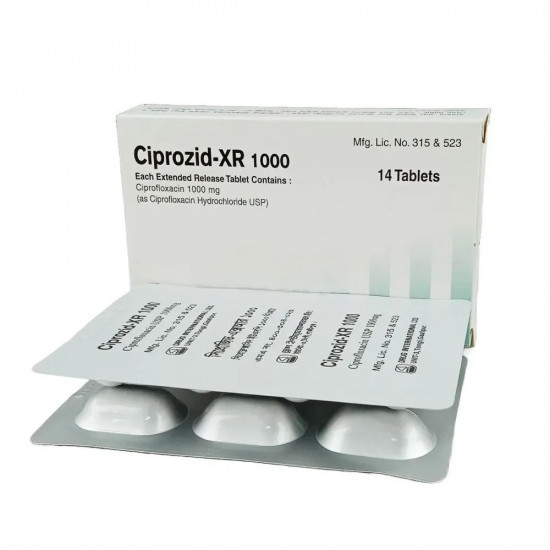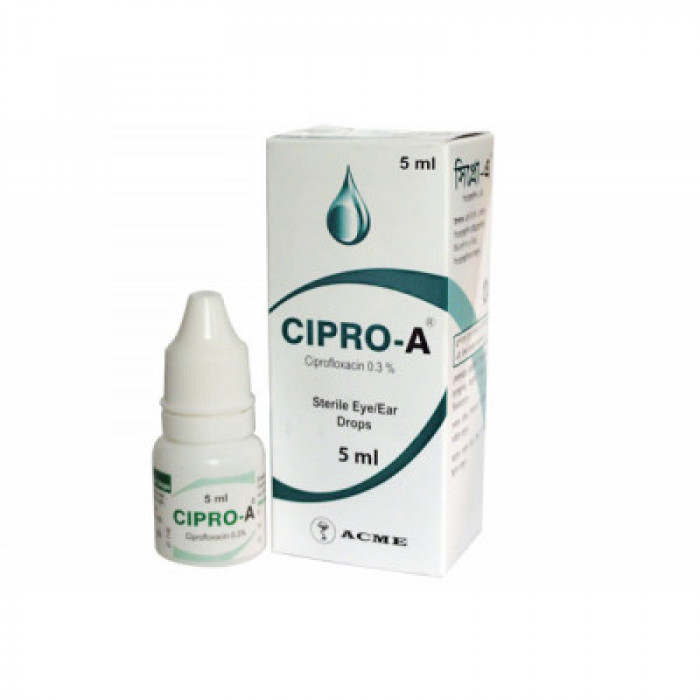
✔ 100% Authentic Product
👁️ Currently Viewing 2186
Bactin 250mg Tablet 10pcs
Ciprofloxacin is an antibiotic medication used to treat bacterial infections. It is commonly prescribed for infections of various parts of the body, including:
- Urinary tract infections
- Infections of the tonsils
- Sinus infections
- Infections of the nose and throat
- Infections of the female genital organs
- Skin and soft tissue infections
- Lung infections such as pneumonia
Discount
Price: ৳ 81
MRP:
৳
85.4
5%
Off

100% Genuine Products, Guaranteed

Safe & Secure Payments, Always

Fast, Secure & Efficient Delivery

Proper Packaging
 Cash on Delivery - All over Bangladesh
Cash on Delivery - All over Bangladesh Regular Delivery - 12-24 Hours, Dhaka City* Charge Tk.39-59
Regular Delivery - 12-24 Hours, Dhaka City* Charge Tk.39-59 Regular Delivery - 24-48 Hours, Other Cities* Charge Tk.99-110
Regular Delivery - 24-48 Hours, Other Cities* Charge Tk.99-110
🌙 রমযান অফার 🌙
 ফ্রি ডেলিভারিঃ - ৭৯৯ টাকা+ অর্ডারে, ঢাকা
শহরে
ফ্রি ডেলিভারিঃ - ৭৯৯ টাকা+ অর্ডারে, ঢাকা
শহরে ফ্রি ডেলিভারিঃ - ২৭৯৯ টাকা+ অর্ডারে, ঢাকার
বাহিরে
ফ্রি ডেলিভারিঃ - ২৭৯৯ টাকা+ অর্ডারে, ঢাকার
বাহিরে
📲 মোবাইল অ্যাপ অর্ডারে সাশ্রয় বেশী
-
Google Play Store থেকে ডাউনলোড
-
Apple Store থেকে ডাউনলোড
100% Genuine Products, Guaranteed
Safe & Secure Payments, Always
Fast, Secure & Efficient Delivery
Proper Packaging
 Cash on Delivery - All over Bangladesh
Cash on Delivery - All over Bangladesh Regular Delivery - 12-24 Hours, Dhaka City* Charge Tk.39-59
Regular Delivery - 12-24 Hours, Dhaka City* Charge Tk.39-59 Regular Delivery - 24-48 Hours, Other Cities* Charge Tk.99-110
Regular Delivery - 24-48 Hours, Other Cities* Charge Tk.99-110 ফ্রি ডেলিভারিঃ - ৭৯৯ টাকা+ অর্ডারে, ঢাকা
শহরে
ফ্রি ডেলিভারিঃ - ৭৯৯ টাকা+ অর্ডারে, ঢাকা
শহরে ফ্রি ডেলিভারিঃ - ২৭৯৯ টাকা+ অর্ডারে, ঢাকার
বাহিরে
ফ্রি ডেলিভারিঃ - ২৭৯৯ টাকা+ অর্ডারে, ঢাকার
বাহিরে- Google Play Store থেকে ডাউনলোড
- Apple Store থেকে ডাউনলোড
🌙 রমযান অফার 🌙
📲 মোবাইল অ্যাপ অর্ডারে সাশ্রয় বেশী
✅ Description:

Safety Advices

Alcohol
UNSAFE
While alcohol is not known to cause any unpleasant side effects when taken with ciprofloxacin, combining alcohol with ciprofloxacin may damage the liver. Therefore, it's advisable to avoid alcohol consumption while taking ciprofloxacin.

Pregnancy
CONSULT YOUR DOCTOR
Ciprofloxacin is classified as a pregnancy Category C medicine. Its effects on pregnant women or the fetus are unknown. Therefore, it's recommended to avoid taking ciprofloxacin if you are pregnant or planning to become pregnant, as it may potentially harm the baby.

Breastfeeding
CONSULT YOUR DOCTOR
Ciprofloxacin is excreted in human milk, but the amount absorbed by the nursing infant is unknown. Therefore, it's advisable to avoid taking ciprofloxacin while breastfeeding to prevent potential harm to the baby.

Driving
CAUTION
Ciprofloxacin can affect alertness and coordination, which may impair your ability to operate machinery or drive safely. It's important to avoid activities that require concentration while taking ciprofloxacin.

Kidney
CONSULT YOUR DOCTOR
If you have a history of kidney diseases or conditions, you should take ciprofloxacin with caution. Your doctor may need to adjust the dose accordingly.

Liver
CONSULT YOUR DOCTOR
If you have a history of liver diseases or conditions, you should take ciprofloxacin with caution. Your doctor may need to adjust the dose if you experience symptoms such as nausea, vomiting, loss of appetite, dark-colored urine, or yellowing of the skin or eyes.
✔️ Uses of Bactin 250mg Tablet
Bacterial Infections
✔️ How does Bactin 250mg Tablet work?
It works by stopping the growth of bacteria. Ciprofloxacin is effective against a wide range of bacterial strains
✔️ Side Effects of Bactin 250mg Tablet
Gastrointestinal disturbances, CNS disturbances, hypersensitivity reactions, joint pain, mild photosensitivity, increase in liver enzymes, risk of hypoglycemia, mental health adverse effects
✔️ Quick Suggestions;
- Your doctor has prescribed Ciprofloxacin to cure your infection and improve symptoms.
- Do not skip any doses and finish the full course of treatment even if you feel better.
- Discontinue Ciprofloxacin and inform your doctor immediately if you get a rash, itchy skin, swelling of your face and mouth, or difficulty in breathing.
- Diarrhea may occur as a side effect but should stop when your course is complete. Inform your doctor if it doesn't stop or if you find blood in your stools.
- Notify your doctor if you feel pain in your tendons, numbness, or tingling sensations.
- Avoid Bactin with caffeine and chocolate as well as food containing caffeine and chocolate such as tea leaves, and cocoa beans.
✔️ Indications:
- Treatment of single or mixed infections caused by susceptible organisms
- Suitable for infections resistant to other antibiotics, including Aminoglycosides, Penicillins, and Cephalosporins
- Effective against a wide range of infections including those of the urinary, respiratory, and gastrointestinal tracts, as well as gonorrhea and septicemia
✔️ Pharmacology
Ciprofloxacin is a synthetic quinolone antibiotic that exhibits a broad spectrum of activity against various types of bacteria. It is effective against many gram-negative aerobic bacteria, including Enterobacteriaceae and Pseudomonas aeruginosa. Additionally, it is active against certain gram-positive aerobic bacteria, including strains that produce penicillinase and methicillin-resistant staphylococci.
The bactericidal action of ciprofloxacin is attributed to its interference with the enzyme DNA gyrase, which is essential for bacterial DNA synthesis. By inhibiting this enzyme, ciprofloxacin prevents the replication of bacterial DNA, ultimately leading to bacterial cell death.
✔️ Dosage & Administration of Bactin 250mg Tablet
- Adults: 100-750 mg twice daily
- Lower and upper urinary tract infections: 250-500 mg twice daily
- Respiratory tract infections: 250-500 mg twice daily, up to 750 mg twice daily for Streptococcus pneumoniae
- Gonorrhoea: Single dose of 250 or 500 mg
- Other infections: 500-750 mg twice daily
Take Bactin 250 in the dose and duration as advised by your doctor. Swallow it as a whole. Do not chew, crush, or break it. Bactin may be taken with or without food, but it is better to take it at a fixed time.
✔️ Interaction
- Avoid concurrent use with Magnesium or Aluminum-containing antacids, sucralfate, or products containing Calcium, Iron, or Zinc
- These products can be taken two hours after or six hours before Bactin
- Avoid concurrent use with milk or dairy products as it may reduce absorption of Bactin
✔️ Contraindications
Hypersensitivity to Ciprofloxacin or other quinolones
✔️ Pregnancy & Lactation
Reproduction studies conducted in mice, rats, and rabbits using both parenteral (injected) and oral (taken by mouth) administration did not show any signs of teratogenicity (ability to cause birth defects), impairment of fertility, or effects on peri/postnatal (around the time of birth) development. However, like other antibiotics in the quinolone class, ciprofloxacin has been found to cause arthropathy (joint abnormalities) in immature animals. Therefore, its use during pregnancy is not recommended.
✔️ Precautions & Warnings
- Caution in patients with CNS disorders, seizures, or convulsions
- Avoid concurrent use with certain antacids or dairy products
- Use with caution in the pediatric population
- Monitor for overdose effects including seizures, renal and hepatic impairment
✔️ Storage Conditions:
- Store below 30°C, protected from light and moisture
- Keep out of reach of children
⚠️Disclaimer:
At ePharma, we’re committed to providing accurate and accessible health information. However, all content is intended for informational purposes only and should not replace medical advice from a qualified physician. Please consult your healthcare provider for personalized guidance. We aim to support, not substitute, the doctor-patient relationship.




















